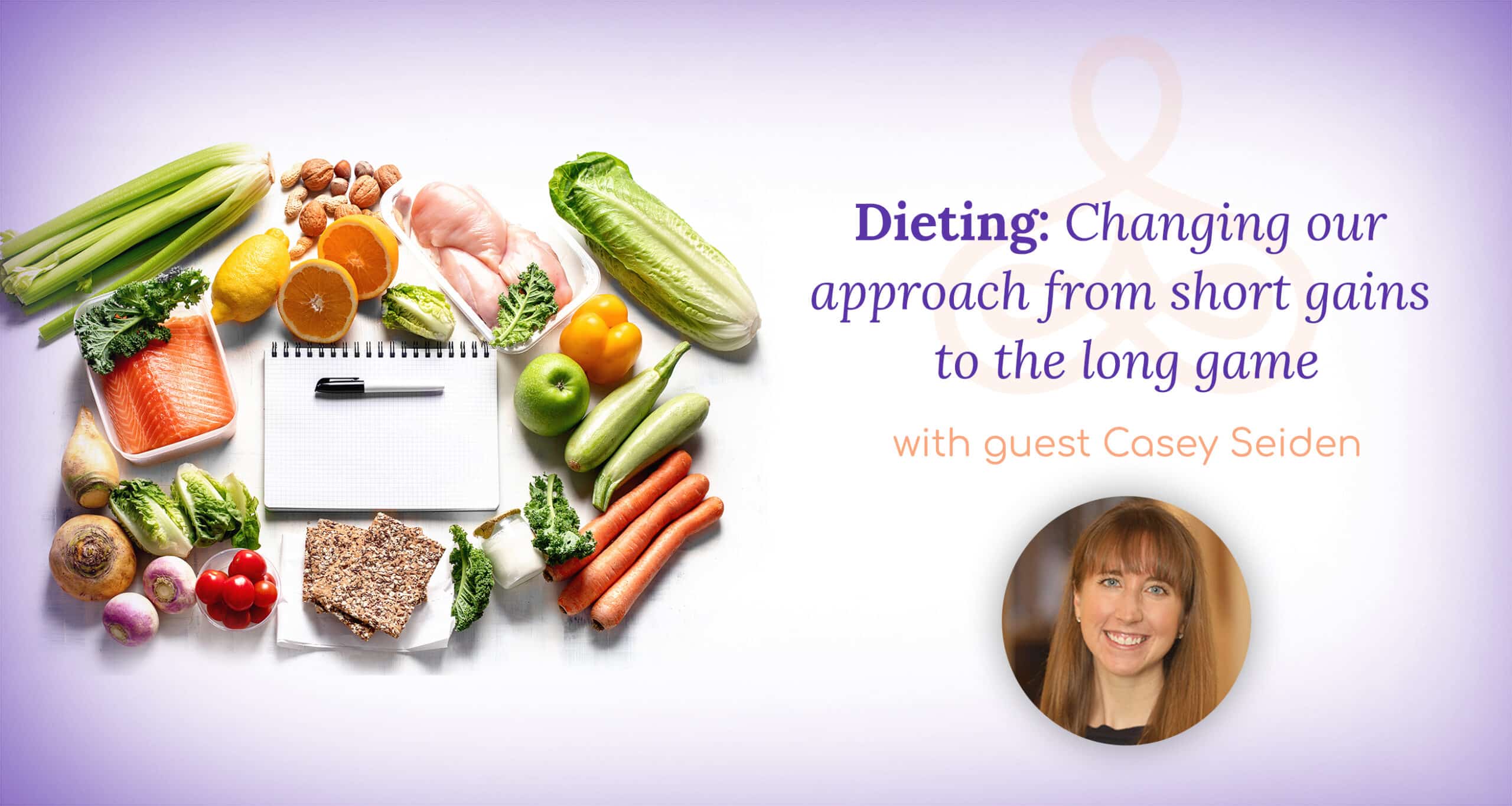If you’re like many people, you likely have some goals in mind for the new year that include healthy lifestyle changes. One of the most common commitments that people make is to change their diet. It can feel overwhelming looking at the many diet options available and wondering which one is “right,” but it’s important to know that the answer can be simultaneously simpler and much more complex. Keep reading to learn more from our registered dietitian, nutritionist, and diabetes educator, Casey Seiden, about how to make the best changes for your health when it comes to eating and maintaining a healthy relationship with food. Don’t forget to check out this episode of Healthful Women for more on this topic.
What is Dieting? Is it Healthy?
When people refer to “going on a diet,” they typically mean subscribing to a specific way of eating, usually centered around a predetermined program that puts parameters on day-to-day eating like calorie intake, food groups, time restriction, and more. The goal of most diets is to lose weight, although it’s not unusual to subscribe to a diet in order to address specific health concerns or even to gain weight. However, we’ll address weight loss specifically since it’s most common.
Despite the prevalence of dieting and the health industry, there is significant evidence that they can be harmful to your health. Although diets in themselves may not be harmful, the pattern of going on and off a diet or switching to different diets can be harmful. Casey says, “there’s a statistic out there that somewhere around… 95% of diets fail… Because people are doing this… yo-yo dieting or jumping from one to the next. When one stops working, they’ll seek something else out. And we actually know that… losing weight but then gaining it back is often a lot more harmful for their health in the long-term. It’s making blood sugars worse, hormone profiles worse, cholesterol.”
Is Dieting Bad?
The culture around dieting has been around for many, many decades. Because it’s very socially acceptable to subscribe to and talk about diets, it can be confusing to hear that there may be downsides to dieting. However, keep in mind that many people equate dieting with weight loss. Weight loss in itself is not bad, but rather the way you go about it. Casey says, “[Social media tells us that] ‘Oh, if I want to look that way or be healthy like that person, I have to eat that way.’ And it’s often driving people to the quick fix, right? The sexy, fast, low-calorie diet that will help you drop the pounds very quickly. But… a lot of those plans… they’re not super sustainable. They might get you those results, but what happens when you stop?”
Diets that promise quick, noticeable results are often the most extreme and most damaging to your health and relationship with food. In which case, these diets are best avoided in favor of healthy, sustainable eating habits that produce gradual weight loss.
How Do I Lose Weight in a Healthy Way?
Losing weight is a perfectly acceptable goal, as long as it’s not done in a way that damages your health. The best way to lose weight is with the help of a registered dietitian or nutritionist who can ensure you’re still getting the essential nutrients you need. They can also help you create changes that work with your day-to-day habits and preferences rather than trying to cut out foods you enjoy (and ultimately lead you to overindulge those foods when given the opportunity). Although it’s easy to fall into a short-term outlook with weight loss and look for the fastest results, shifting to a long-term outlook will give you better satisfaction and better long-term health.
Casey says, “the slower and steady more long-term game is, I think, shown scientifically to be the most helpful when it comes to resolving those health issues.”
Schedule an Appointment
To meet with our team and learn more about how to maintain a healthy and sustainable lifestyle, we invite you to contact Carnegie Women’s Health today by calling or filling out our contact form.

